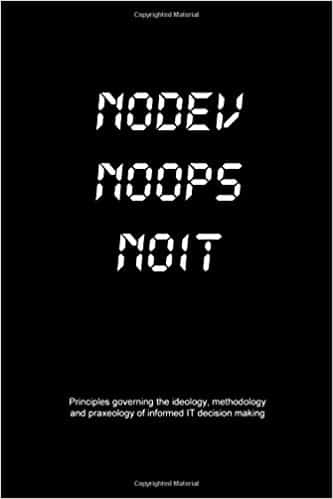Flynt Leverett, author of Going to Tehran: Why the United States Must Come to Terms with the Islamic Republic of Iran, discusses why Iran – contrary to popular belief – isn’t a nation composed of suicide-bombers and “Mad Mullahs;” the difficulty of debunking 33 years of anti-Iran propaganda; applying a Nixon-goes-to-China model for US-Iran reconciliation; and the numerous wasted diplomatic opportunities in the Bush and Obama administrations.
Scott Horton Interviews Flynt Levertt December 10, 2012
TRANSCRIPT (not proofed)
SCOTT HORTON: All right, y’all. Welcome back to the show. I’m Scott Horton. Scotthorton.org is my website. I keep all my interview archives there, more than 2500 of them now going back to 2003, and you’ll find me on Facebook, Twitter and YouTube at /scotthortonshow. All right. Next guest is Flynt Leverett. He keeps the website Race for Iran with his wife, Hillary Mann Leverett, and he teaches at Penn State and is a fellow at the New America Foundation and formerly was with the CIA and the State Department and the National Security Council, resigned in the Bush years along with Hillary Mann now Leverett over Iran issues. Welcome back to the show. How are you doing?
FLYNT LEVERETT: Thank you, Scott. Good to be back with you.
HORTON: Well, good. I’m very happy to have you here. And you have this very important piece in Harpers. I hope a lot of people take a look at it. It’s called “The Mad Mullah Myth.”
And actually, I think I can be pretty good at playing the Devil’s Advocate on this one and see what you really have to say about it. In fact, I was just reading a book by my favorite, the War Nerd, Gary Brecher, not sure if you ever heard of him, but he has this thing about how the Shiites, man they’re obsessed with martyrdom, and they’re just more than happy to die in human waves without even rifles, running straight at the, you know, machine gun nest or whatever. They’re completely crazy, and that goes for their leaders too, and they’re more than happy to blow up their whole country because they want, who knows, the Twelfth Imam – I don’t think the War Nerd addressed the Twelfth Imam – but anyway, we hear this all the time that, yeah, they’re more than happy to commit suicide. If they can get one nuke off at Israel in order to destroy Israel, even at the cost of their own country, sure of course they would because it’s the end of the world and all this stuff, and also Hitler. And so, how do you debunk that?
LEVERETT: Well, you know, I’m reaching a stage where I don’t know whether to laugh or cry when people who, you know, I don’t think know very much about Shia Islam, don’t know very much about Iran, haven’t spent a lot of time, I would suspect, talking about Shia Islam with people who believe it, live it, think about it.
But I would say, just look at the historical record. The Islamic Republic has never used weapons of mass destruction. In its war with Iraq, when the United States among others was supporting Saddam Hussein in an eight-year war of aggression against the new Islamic Republic, Ayatollah Khomeini’s own military leaders came to him and said, “We inherited the ability to produce chemical weapons agents from the Shah. We need to do that and weaponize it so that we can respond in kind. We have, you know, tens of thousands of our people, soldiers and civilians, who are being killed in Iraqi chemical weapons attacks. We need to be able to respond in kind.”
And Imam Khomeini said no, because this would violate Islamic morality, because it is haram, it is forbidden by God to do this, and the Islamic Republic of Iran will not do this. Both Imam Khomeini and his successor Ayatollah Khamenei have said repeatedly over years that the acquisition or use of nuclear weapons would also violate God’s law. Khamenei has said to do it would be a big sin.
And, you know, this is not the rhetoric of people, you know, who are out to bring the apocalypse down upon everyone else and themselves. You know, there has never been an Iranian suicide bomber. Never been an Iranian suicide bomber. The most detailed, data-rich, expensive study of suicide terrorism, done by scholars at the University of Chicago and the U.S. Air War College, concluded that there literally has never been an Iranian suicide bomber.
HORTON: You’re referring to Robert A. Pape and his work in Dying to Win and Cutting the Fuse.
LEVERETT: Exactly. Exactly. In Cutting the Fuse. It’s right there. There has never been an Iranian suicide bomber. And so people like to talk about the Islamic Republic as, you know, run by these mad mullahs or, you know, even if the President is a layman, you know, it’s this crazy millenarian Ahmadinejad who just is waiting to get his hands on a nuke so he can turn the whole, you know, 70+ million in Iran into history’s first suicide nation. And there’s just absolutely no historical or even rhetorical support for that line of argument.
This is a country that since its revolution has basically been, you know, much, much more concerned about defending itself, defending the Iranian people, consolidating and maintaining its own independence in the face of hostile regional powers and hostile outside powers including most notably the United States.
HORTON: Okay. Well. Lots of stuff there. First of all, I forget if it was Hannah Arendt or one of those who said that all revolutionaries become conservatives the next day after they win.
LEVERETT: (laughs) Well, you know the first task of a revolutionary, once he or she has overthrown the incumbent regime that he’s opposing, the first task is to consolidate power. And that was certainly the case for the Islamic Republic, and the Islamic Republic had to do this when, in fairly short order, as I said, Saddam Hussein launches this eight-year-long war of aggression against it, supported by most of his regional neighbors and supported by the United States. So they’re having to consolidate power while they are also trying to defend the Iranian people against this onslaught.
And then if you look at what they did after they come out of this war in 1988, after it’s over and their military has been very, very badly decimated in this war, as has their economy as a whole, they actually divert significant resources away from military spending so that they can focus on postwar reconstruction, on building up a healthcare system, on building up an education system for their people, and if you look at the, you know, outcomes they have produced for Iranians in those areas, considering the baseline that they started from, it is really impressive what they have accomplished.
You know today the United States spends 70 times, seven zero times, more on defense than Iran, Saudi Arabia more than four times what Iran spends on defense, Israel spends twice as much on its military as Iran does. Iran today has basically no capability to project large amounts of conventional military force beyond its borders. The idea that Iran is going to come across its borders and, to borrow a phrase from the U.S. Army, park its tanks in somebody else’s front yard, is just – you know, it’s fantasyland.
HORTON: Yeah. They have a long way to go to get to Israel, even though, you know, they have friends from Baghdad to Basra in charge there now thanks to the United States. Still, even to get from there across Jordan into Israel is pretty far without getting bombed off the face of the earth for a column of tanks, I would think.
LEVERETT: Uh, yeah. That’s right. So they are no conventional military threat to their neighbors. They do have a stock of ballistic missiles, conventionally armed ballistic missiles which they have said they would use in response to attacks on them, but they are certainly not the only country in the world that makes that sort of deterrent retaliatory threat as part of its defense posture, and if you’re concerned about those missiles not flying anywhere, you know, I would suggest you don’t attack Iran, and those missiles aren’t going to go anywhere.
HORTON: All right, now. Here’s the thing about all of this stuff is that – and I forget if you touch on this in your article – but it really doesn’t matter what any of the facts are, right? There’s an endless drumbeat of bad things that Iran did. It doesn’t matter that none of them are true. It doesn’t matter that, you know, a million times zero is still zero. They got a million things. And so, where there’s that much smoke, there must be fire. And I think in the popular narrative, “Iran is a terrible danger that must at some point be dealt with,” I think they’ve won, the war party has won on that, and that means it’s just a matter of time. Am I wrong?
LEVERETT: Um, you may be correct. I hope you’re not. And Hillary and I have written the book that Harpers was good enough to print an excerpt from, in no small part because, you know, we want to do everything we can at least to make sure that the war party doesn’t win.
Now, you know, it’s a very tall order. The war party, as you describe them, we saw what they are capable of doing in terms of getting us to invade Iraq. They can manufacture intelligence. They can create threats that aren’t there. They can link a country that they don’t like to other threats that Americans are afraid of, like Al Qaeda; even though there’s no link between that country they don’t like and Al Qaeda, they can manage to pull that off. They can tie into very powerful domestic constituencies who can put lots of pressure on Congress, lots of pressure on the mainstream media, and so on.
We saw with Iraq what they’re capable of doing, and you’re right, they’re certainly trying to do it with Iran now. Hillary and I saw that inside government during the run-up to the Iraq war. Basically all of the institutions that Americans count on to provide a check on that sort of thing, the Congress, the media, think tanks, public intellectuals – you know with some few and extremely honorable and courageous exceptions, for the most part those institutions tanked. They provided no independent check on the war party.
And Hillary and I have written this book, Going to Tehran, as I said, in no small part because at least this time around we want someone to be asking the hard questions and making the kinds of countervailing arguments that should have been asked, should have been made before we invaded Iraq but to a large extent really weren’t put forward.
HORTON: All right, now. I think the first time I ever heard of you, Flynt, and again it’s Flynt Leverett, teaches at Penn State and keeps the blog Race for Iran. The new book, again, is Going to Tehran. The first time I heard of you was in Gareth Porter’s work “Burnt Offering” in The American Prospect –
LEVERETT: Yes.
HORTON: – about what was called then, I think, I forget, this is from the article, but the golden offer, the big deal, right after I think the fall of Saddam Hussein, the Iranians said, “Hey, you know what? Let’s be friends.” Was that really credible?
LEVERETT: Yeah. I mean, it was credible in the sense that the Iranians prepared it and sent it in. I certainly believe it was credible. The only way you could have really confirmed with certainty that it was credible was by testing it, by actually saying, “Okay, we’ve gotten this really interesting looking proposal from the Iranians. Let’s talk with them about it and see if they’re serious, see if they really are prepared to negotiate on this basis.” But the Bush administration, which was in office in the spring of 2003 when that offer came in, the Bush administration, you know, refused even to respond to it, much less to, you know, try and pursue some sort of diplomacy, some sort of negotiation on the basis of it.
HORTON: Well, now, this proposal came from the Ayatollah, right? It wasn’t just something that someone in Iran said. It was Ayatollah saying, “Hey, we could have a deal on the nuclear issue, on our supporting for Hamas and Hezbollah and Lebanon and Palestine, and we’ll work with you on your invasion of Iraq because thanks so much for using Ahmed Chalabi’s information to get yourself into that thing, and – ” I mean, it was really substantive proposal.
LEVERETT: The proposal was prepared and passed to us through Swiss intermediaries by the Iranian foreign ministry. And when the foreign ministry conveyed it, they said that this had been vetted by both, at the time, President Hattami and by the Supreme Leader. And it was, you know, an official proposal. In diplomatic parlance it’s called a “nonpaper” because it doesn’t come in on like official foreign ministry letterhead stationary, but it’s still an official communication, an official proposal. The United States uses nonpapers like this all the time in various kinds of diplomatic channels. You know, it was, by all appearances a serious official proposal, and we should have tested it. We should have responded. But we didn’t.
Look, I mean, this is also part of the Mad Mullah myth, that this is a regime, a government that’s too either just ideologically committed to anti-Americanism or too dependent on it for its own domestic legitimacy ever to contemplate improved relations with the United States.
But again, just look at the historical record. You know, the historical record is that whenever the United States has reached out to Iran and said, “We need your help with some problem,” whether it’s American hostages in Lebanon, whether it’s getting weapons to Bosnia Muslims when U.S. law prohibited the United States from doing that, whether it’s, you know, help against Al Qaeda and in Afghanistan after 9/11, whenever we have reached out like that to Iran, they have tried to respond positively. They have done much, not everything, but much of what we’ve asked of them in those circumstances, you know, in the hope that this would, you know, lead to an improvement in relations.
It’s never worked out, but not because the Iranians didn’t respond. It didn’t work out because we decided, you know, to just pocket their cooperation and then cut it off. They have advanced any number of proposals over the years for a more kind of comprehensive improvement in relations which, you know, we have pretty consistently rebuffed.
Their stated position, you know, from Ayatollah Khamenei himself, and it’s been echoed by presidents, by foreign ministers, by other senior officials, their official position is, if the United States is willing to accept the Iranian revolution, accept the Islamic Republic, the product of that revolution, as a legitimate political entity representing legitimate national interests, and to deal with us on that basis, there is no barrier to improved relations between Iran and the United States, and in fact Iran would welcome improved relations on that basis.
From the Iranian standpoint, it’s the United States which has never shown itself seriously willing to proceed on that basis. We think relations can only improve after Iran has surrendered to every one of our demands, and then we’ll see if it’s possible, we’ll think about it then, whether we can actually improve relations. That’s never going to work with this – [crosstalk]
HORTON: Well is that meant to work or that’s just, that’s the name of the policy until regime change comes.
LEVERETT: Yeah. Until regime change comes. You know, we tried that for 20 years after the Chinese Revolution with the Peoples Republic of China, and it was an utterly stupid and counterproductive policy that among other things got us bogged down in Vietnam.
You know, fortunately, Richard Nixon, you know, for all his other many sins, he did one unqualified great thing in his presidency, and that was the opening to China. He basically said, “This is stupid. It’s hurting the United States. The United States needs to be able to deal with this large, important country in Asia, and, you know, I am going to accept the Peoples Republic as a legitimate entity that has national interests just like we do, and we are going to see if we can’t align enough of those interests to make it possible for these two countries that have been estranged from one another since the Chinese Revolution, if we can actually have a productive relationship.”
And it worked. It worked brilliantly.
That’s the kind of approach we need to take toward Iran today, toward the Islamic Republic.
It’s just like China. I think for 20 years Mao and Zhou Enlai had said, “You know, we’re not, you know, unremittingly unreasonably hostile toward the United States. If the United States is prepared to accept us, accept the revolution that we came from, accept us and deal with us as a legitimate entity representing legitimate national interests, there is no barrier to good relations between the United States and China. We would welcome that. But, you know, you’re not going to be able to bully us around. You’re not going to be able to just make demands of us, and you’re not going to be able to get us to compromise our sovereignty for your, you know, to accommodate your preferences.” And, you know, it took us 20 years, but we figured out how to do that.
HORTON: All right, but so now Barack Obama’s been reelected and he has failed so far to work out any kind of a deal, and I guess as long as the policy is until regime change comes, then they still want to have the nuclear issue as this sort of pseudononissue rather than have an agreement. So, I guess my prediction for the next few years is the status quo forever, right? Is that what you think?
LEVERETT: I am not at all optimistic about what… [crosstalk, inaudible]
HORTON: I mean the outlines of the deal –
LEVERETT: …Obama’s gonna do.
HORTON: It’s pretty obvious what the outlines of the deal are, if they wanted to have a deal, they really could have one, right?
LEVERETT: Yeah! [crosstalk]
HORTON: I mean aside from them not being crazy, I mean, on the particulars of the nuclear issue, there’s enough eye-to-eye there, even, right?
LEVERETT: Look, if you accept that Iran has a legal right to enrich uranium under safeguards on its own territory if it chooses to do so, then everything becomes possible. You could have a deal – [crosstalk]
HORTON: Well, and the Obama administration has even, they’ve sort of accepted that, right? At least implicitly.
LEVERETT: Who’s accepted that?
HORTON: The Obama administration, like their deal was go ahead and enrich to 3.6%, just not 20.
LEVERETT: No! The Obama administration was never prepared to say Iran had a right to enrich at those lower levels. It was prepared to do a kind of narrow deal that would buy it a certain amount of time to figure out maybe what it wanted to do on these bigger issues, but it has never been willing to say Iran has a right to enrich, and in fact I’ve talked to senior administration officials just within the last couple of weeks who tell me that the policy is, there’s no inclination to do that. The policy is still, the goal is to get Iran to suspend uranium enrichment.
HORTON: I thought that they had, by offering the deal that they had offered – not that they ever wanted to follow through on really making the deal, but I thought that they were implicitly saying we would tolerate to 3.6% [crosstalk] – not that they were outright saying it.
LEVERETT: People, people wanted to construe that –
HORTON: Ah.
LEVERETT: – but the Obama administration was never willing to acknowledge that.
HORTON: I see.
LEVERETT: And, you know, a lot of people have wanted to construe it that way, but the Obama administration has never been willing to do that. And if you look at why the Obama administration rejected the deal that Brazil and Turkey brokered with Iran over this issue in May of 2010, you know, Obama administration officials and Dennis Ross, people like that, have said in public, “Oh, we had to reject it because the first point in that deal that the Brazilians and the Turks brokered was it acknowledged Iran’s right to enrich. And we couldn’t have that.”
HORTON: Yeah. Even though Obama had actually asked them to negotiate the deal, right?
LEVERETT: That’s right. That’s right. And they put terms on it which the Brazilians took. They took the letters that Obama had sent to the Brazilian president, the Turkish prime minister. They even showed the Iranians those letters while they were negotiating with them because the Iranians were saying, “You know, are you really sure the United States is going to sign off on this?” And they said, “Oh yes, we have letters from the President of the United States! Look!”
But it was really just kind of a cheap trick on Obama’s part. They thought that if the Brazilians and Turks insisted on the conditions in Obama’s letter, the Iranians would never agree, and then when the Brazilians and the Turks failed, they would have to support – they were both members of the Security Council at that time – they’d both have to support any sanctions resolutions. It was just a kind of cheap trick. They thought with these letters, if they stick to them, the Iranians will never say yes. But the Iranians said yes! And then it’s the Obama administration that can’t take yes for an answer.
HORTON: Right. And, I guess somebody might have argued, “Well, that’s just because he had to get reelected and he didn’t want the Republicans to call him a wimp,” because after all Nixon was a Republican, it’s a lot easier for him to go – that’s why he could go to China, right? Because he was Mr. Red Bait Demagogue, and so if he could go and shake hands with Mao, I guess it’s all right. But Obama – you know, they call him Jimmy Carter all day and whatever. He can’t do it. Can he? I don’t know. Does he even want to?
LEVERETT: Well, yeah. I mean, I think he could if he wanted to. I think more important than Richard Nixon being a Republican was that Richard Nixon actually had an accurate assessment of America’s place in the world when he entered the White House, and he had really thought through what that should mean for the United States strategically. And he understood how important it was for the United States. It’s not a favor to the Chinese. He understood how important it is for the United States to open relations with China.
And he put every, you know, ounce of political skill, Machiavellian calculation, diplomatic acumen, you know, capacity for secrecy – all of these things, you know, the good and maybe some of the not-so-good things in his political persona – he put all of them into this and achieved this historic breakthrough because he knew it was strategically vital for his country.
And, you know, I don’t think the main problem with Obama is that he’s a Democrat. I think the main problem is that he doesn’t really understand where the United States is in the world right now. He doesn’t really have a strategic vision for the United States, and, you know, whatever vision he does have doesn’t, you know, compel him enough, doesn’t matter enough to him that he’s actually willing to spend and risk political capital to realize it.
HORTON: Yeah. He’ll do all – he’ll risk and spend whatever it takes to do the wrong thing, like have a war in Libya, or in Syria, but when it comes to not having a war, he just can’t find it within himself to summon the courage to (laughs) – whatever.
LEVERETT: Yeah. It just doesn’t seem important enough to him.
HORTON: Yep. All right. Well, listen, it’s always great to talk to you. I really appreciate your time on the show, Flynt.
LEVERETT: Thank you, Scott. Good to talk to you.
HORTON: Everybody, that’s Flynt Leverett, he teaches at Penn State, teaches foreign relations there at Penn State. He’s got this piece in Harpers with his wife, Hillary Mann Leverett, it’s called “The Mad Mullah Myth.” It’s in the latest issue of Harpers, and it’s an excerpt from their new book, which I’m sorry I forgot to say this at the beginning, called Going to Tehran. And please keep up with their great blog, Race for Iran at raceforiran.com.
Podcast: Play in new window | Download
















